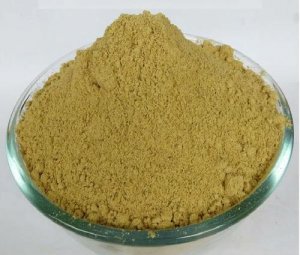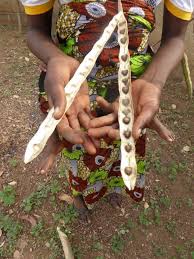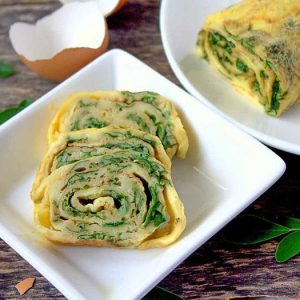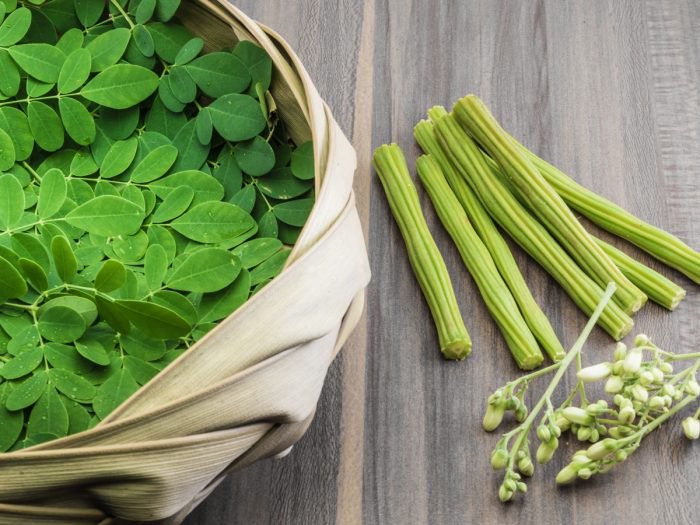Moringa oleifera is the most refined species in the genus Moringa, the only genus in the plant family Moringaceae. Common names comprise of moringa, drumstick tree (from the tall, slender, triangular seed-pods). M. oleifera is a quick-growing, drought-resistant tree, native to tropical and subtropical regions of South Asia. It is widely cultivated for its budding seed pods and leaves used as vegetables and for traditional herbal drugs. It is also used for water purification. M. oleifera is considered to be an aggressive invasive species.
| Scientific classification | |
| Kingdom: | Plantae |
| Clade: | Angiosperms |
| Clade: | Eudicots |
| Clade: | Rosids |
| Order: | Brassicales |
| Family: | Moringaceae |
| Genus: | Moringa |
| Species: | M. oleifera |
Cultivation –

The moringa tree is developed mainly in semiarid, tropical, and subtropical areas, corresponding in the US to USDA hardiness zones 9 and 10. It tolerates a broad range of soil conditions, but prefers a neutral to slightly sour(pH 6.3 to 7.0), well-drained sandy or loamy soil. In waterlogged soil, the roots have a tendency to rot. Moringa is a sun and heat-loving plant and does not endure freezing or cold climate. Moringa is particularly suitable for dry regions, as it can be grown using rainwater without costly irrigation techniques.
| Parameter | Requirement/range |
|---|---|
| Climate | Grows best in tropical or subtropical |
| Altitude | 0 – 2000 m |
| Rainfall | 450 – 3250 mm Irrigation needed for leaf production |
| Soil Type | Loamy, sandy, or sandy-loam |
| Soil pH | pH 5 – 9 |
Nutrients in Moringa Seeds –

- a) Protein: 2 grams
- b) Vitamin B6: 19% of the RDA
- c) Vitamin C: 12% of the RDA
- d) Iron: 11% of the RDA
- e) Riboflavin (B2): 11% of the RDA
- f) Vitamin A (from beta-carotene): 9% of the RDA
- g) Magnesium: 8% of the RDA
- h) Quercetin: This powerful antioxidant may help lower blood pressure
- i) Chlorogenic acid: Also found in huge amounts in coffee, this acid may help control blood sugar levels after a meal
Health Benefits –
- a) Asthma – In the latest study, it is shown that taking 3 grams of moringa seeds twice daily for three weeks reduced asthma symptoms and the severity of asthma attacks in all age groups.
- b) Increasing breast milk production – A research suggests that taking 150 mg of specific moringa seeds twice daily after childbirth increases breast milk production.
- c) Diabetes, Diarrhea, Epilepsy, Stomach pain (gastritis), Stomach and intestinal ulcers. Heart problems, High blood pressure, Kidney stones are some areas where Moringa seeds seem to be very beneficial.
- d) Athlete’s foot, Dandruff, Warts, Skin infections are the other conditions where these seeds are very beneficial.
Apart from these health benefit Foods, perfume, hair care products, and machine lubricant are manufactured by moringa seeds oil.
How to include them in your diet?

Moringa is an important food origin in some parts of the world. Because it can be grown reasonably and efficiently, and the leaves absorb lots of vitamins and minerals when dried, moringa is used in India and Africa at large scale. The immature green pods (drumsticks) are arranged similarly to green beans, while the seeds are removed from more mature pods and cooked like peas or roasted like nuts. The leaves are also cooked and used like spinach similarly.
Moringa seeds powder can be widely used in various Indian and other cuisines there are a lot of dishes which can be prepared by moringa seeds powder. Get Organic Moringa Powder (1kg) at just $40.74 @swadesi.com – https://www.swadesi.com/b-b-organics-moringa-powder-100-g.html
and from Amazon at just Rs 137 – https://www.amazon.in/Organics-Moringa-Powder-100/dp/B01N0ZGUZ2?ref_=ast_sto_dp



